I am maintaining a journal in the format of noting down the days in a tabular way, having always the same day on one page, just for the current year. Like this, I see what happened exactly that day the years before. Such has a capacity of 5 years. There are also versions with 10 years, but then the daily space for writing gets quite compressed. This is a very nice way of keeping a journal. Now I realized that exactly a year ago, I packed a “Movecube” which is an OSB box available in different sizes …
Birthday South of Greenland
"Passantenhaven" missing
B&B (Boat and Bicycle)
It is always a nice and special perspective to approach a countryside or city by boat. It is a detached world from the buzz. Living on a boat, is even a step beyond, specially in the Netherlands. And then there is the second Dutch mode of transport: the bicycle. As my Marina is close to Arnhem, I explored the ride on my folding bike to the city. One objective is also to take the bike to the train station and then fold it up and take the train to Tilburg University. This sounds like a nice commute. The best mode of commuting, I ever had was taking ice skates in winter from my home to the office in Beijing. But also, now boat-bike and train sound like a good option.
Graduating the Masters in International Management
Today I had the honor and privilege to address the students to address students of Tilburg University’s Master of International Management Program at their graduation ceremony. In US schools, this is called “commencement speech”, and I like to keep it in the spirit that it is mainly about things to come. We are increasingly releasing students into an unpredictable future. There are unprecedented opportunities and threats side by side. Increasingly education will be the key to finding solutions and inventing the skills needed for problems of which most are still unknown. What makes Tilburg University special, compared to the other schools I teach, is that it is a humanistic university. As a natural scientist by training, I have often ignored the social sciences side of problems. That’s why for example we discussed Climate Change since the 80s but got nothing substantial done until (hopefully) today. This is what we can’t afford to continue doing and without “Understanding Society” (the slogan of Tilburg University) many of our technical capabilities will be in vain or even backfire. First of all, I wish all students graduating now all the best for their professional and personal future. But there is also something for me in graduation events. It’s always a bit like graduating again myself, role up the sleeves, and go out shaping the future with the best I can. This is how University work is a real win-win situation. Good luck to all. See you out there.
In the Aula of Tilburg University - Understanding Society
Amsterdam Canals
Seeing a city has a lot to do with perspective. For example, one winter, I commuted with ice skates to my office in Beijing on the frozen canals in Chaoyang District. It was like being in a different city altogether. Then, also in Beijing, I took 30 times different commuting routes, and like this came to places I would have never seen otherwise. Most people only consider the shortest way, because they only think of its utility getting to work and back hassle-free and fast. In the long run, and expanded to all areas of life, efficiency makes stupid. Also, the first impression of a city defines a lot how you feel about it: the road you take, the station you arrive, people, you meet first. So, when I come to a city the first time, I take good care of how I enter it and who I see first.
I was reminded of this impact of your perspective when last weekend, a friend took us out on his boat through the canals (gracht) of Amsterdam. Amsterdam is a lovely city - traditional and progressive and innovative at the same time. Seeing it from the waterside, made it even more clear to me. What I mean, is the perfect blend in traditional and modern architecture and city planning, the cultural richness, liveliness, and for example that Amsterdam will be a fully electric car city by 2030. I like coming to Amsterdam, no matter from which angle. But the boat’s view was again an exceptional one.
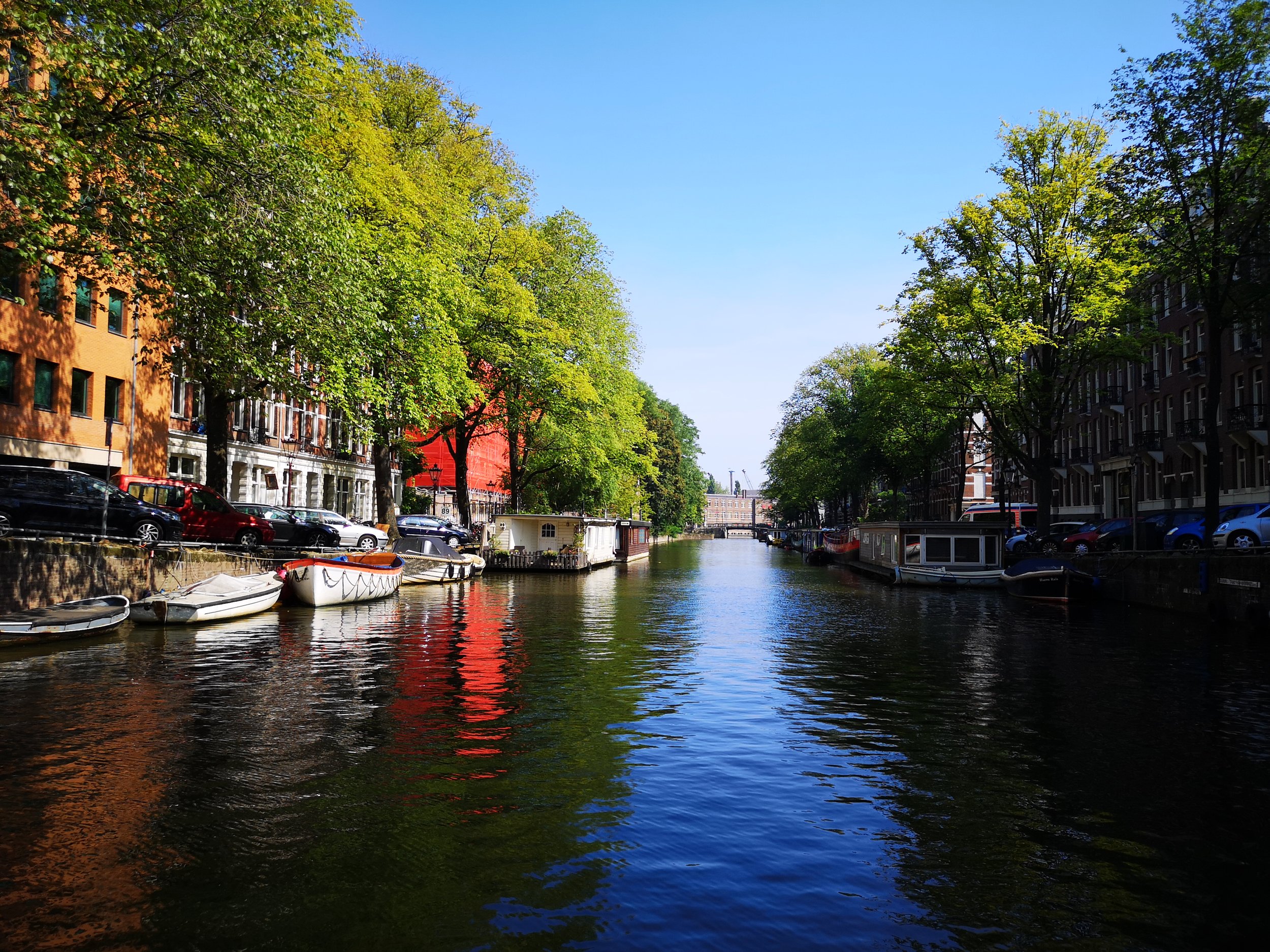
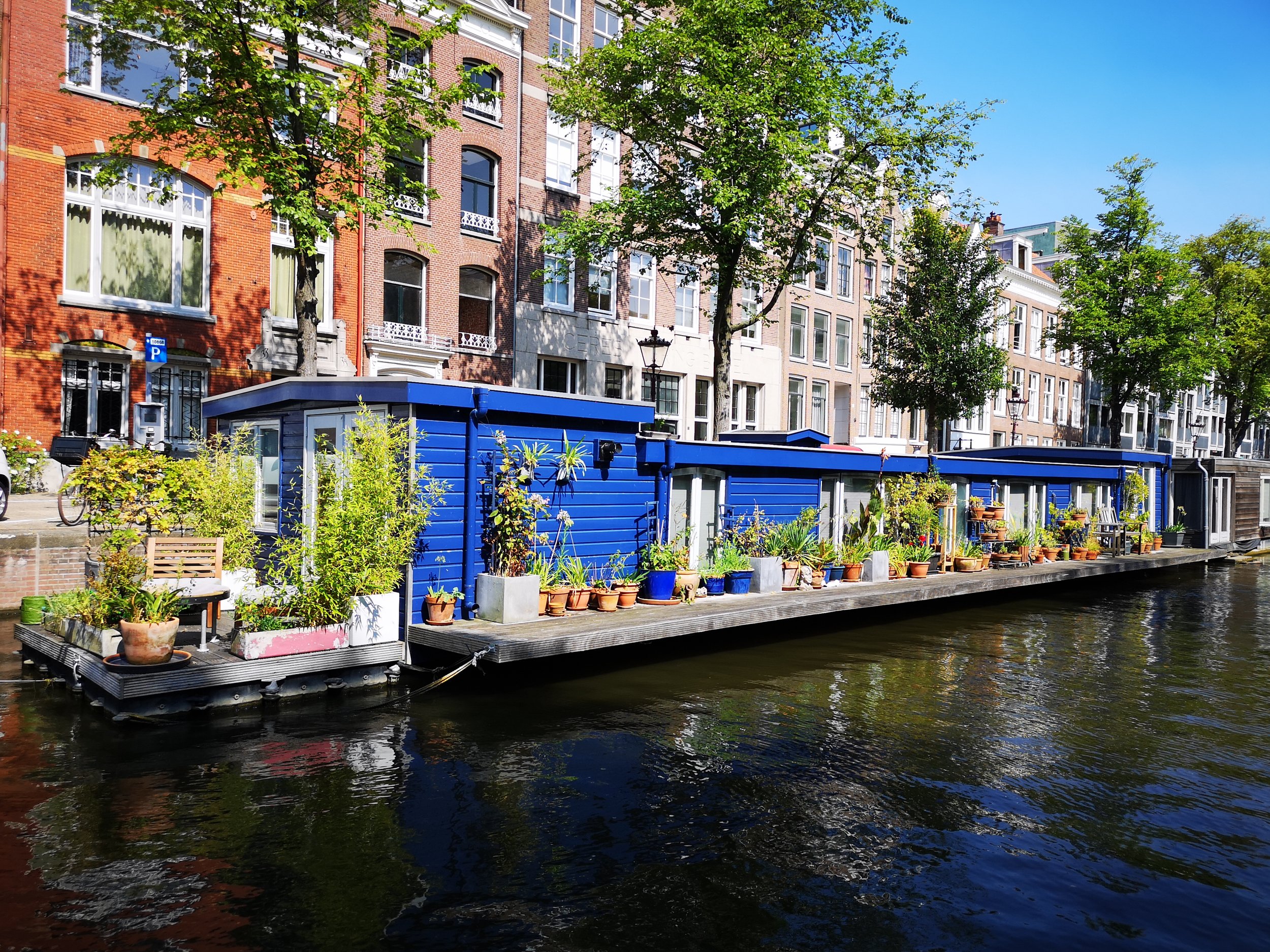
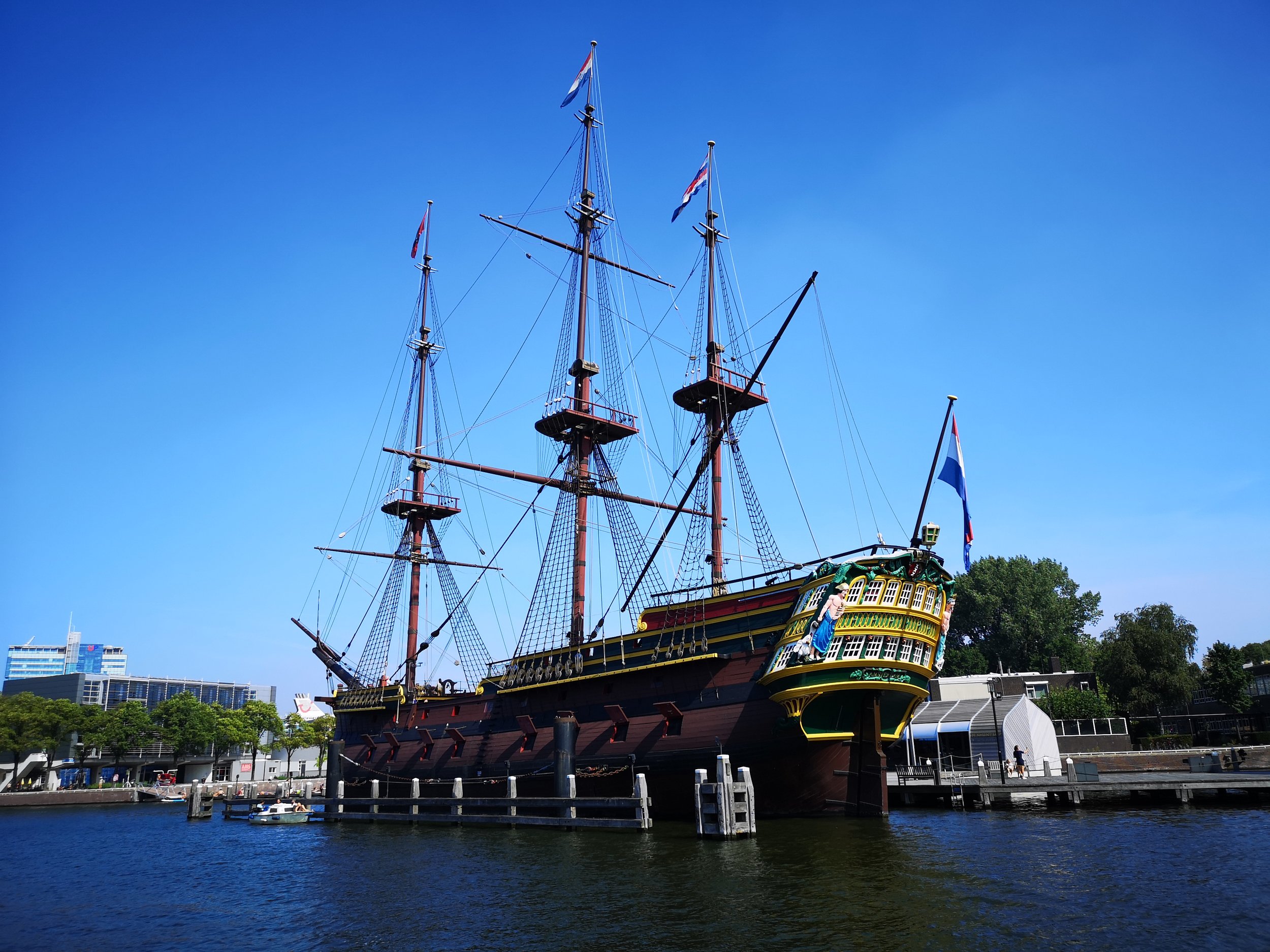
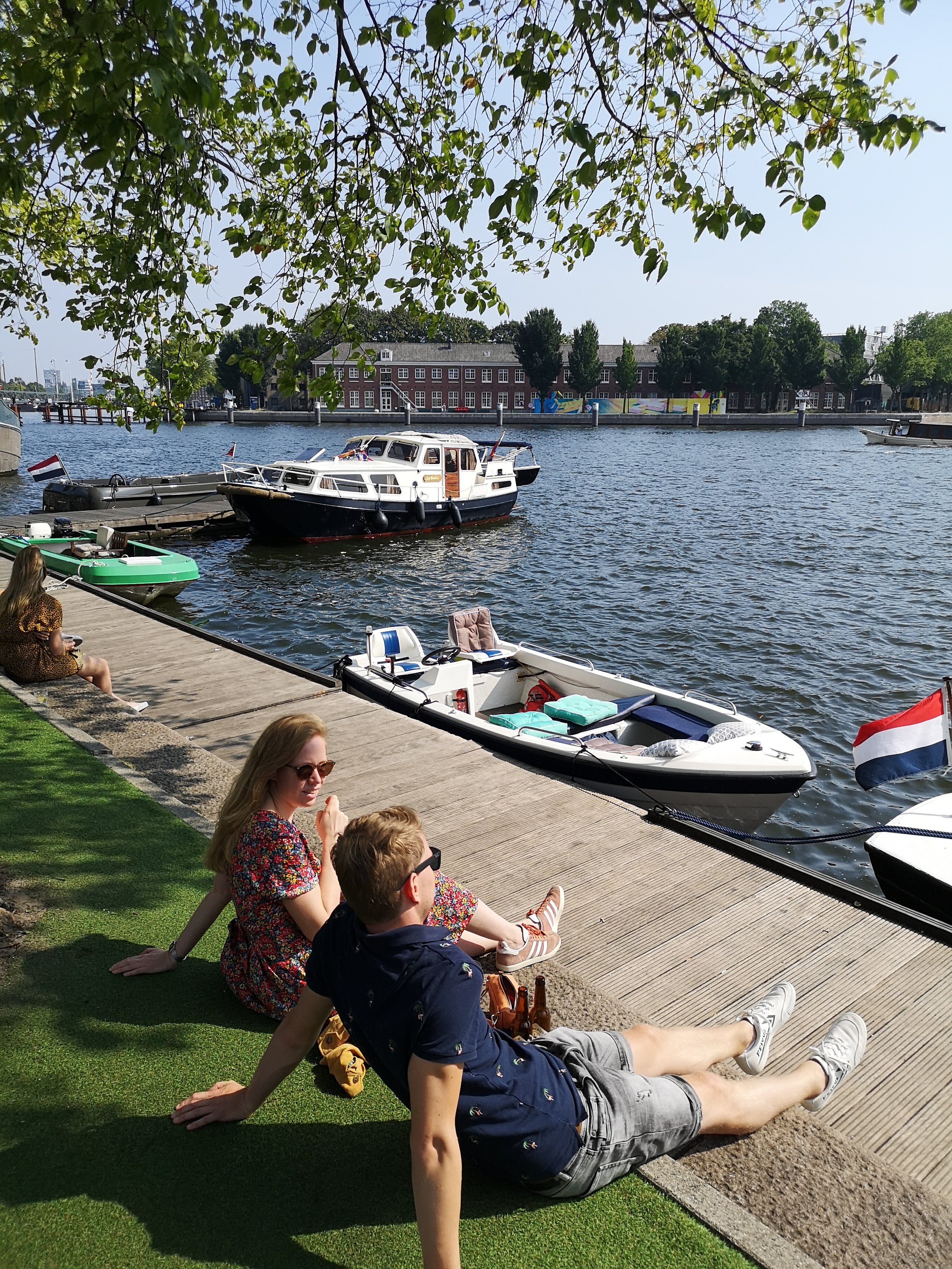

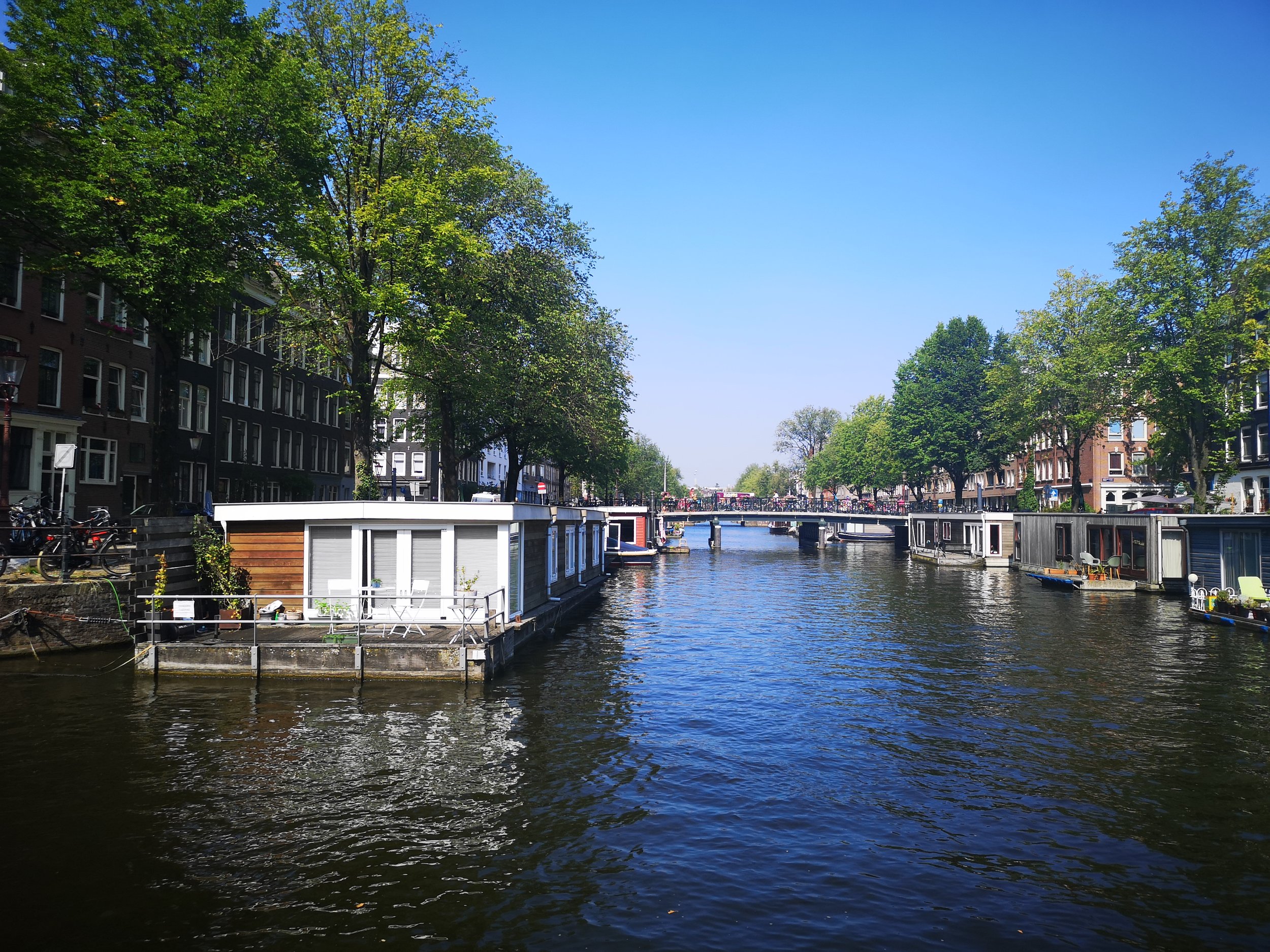
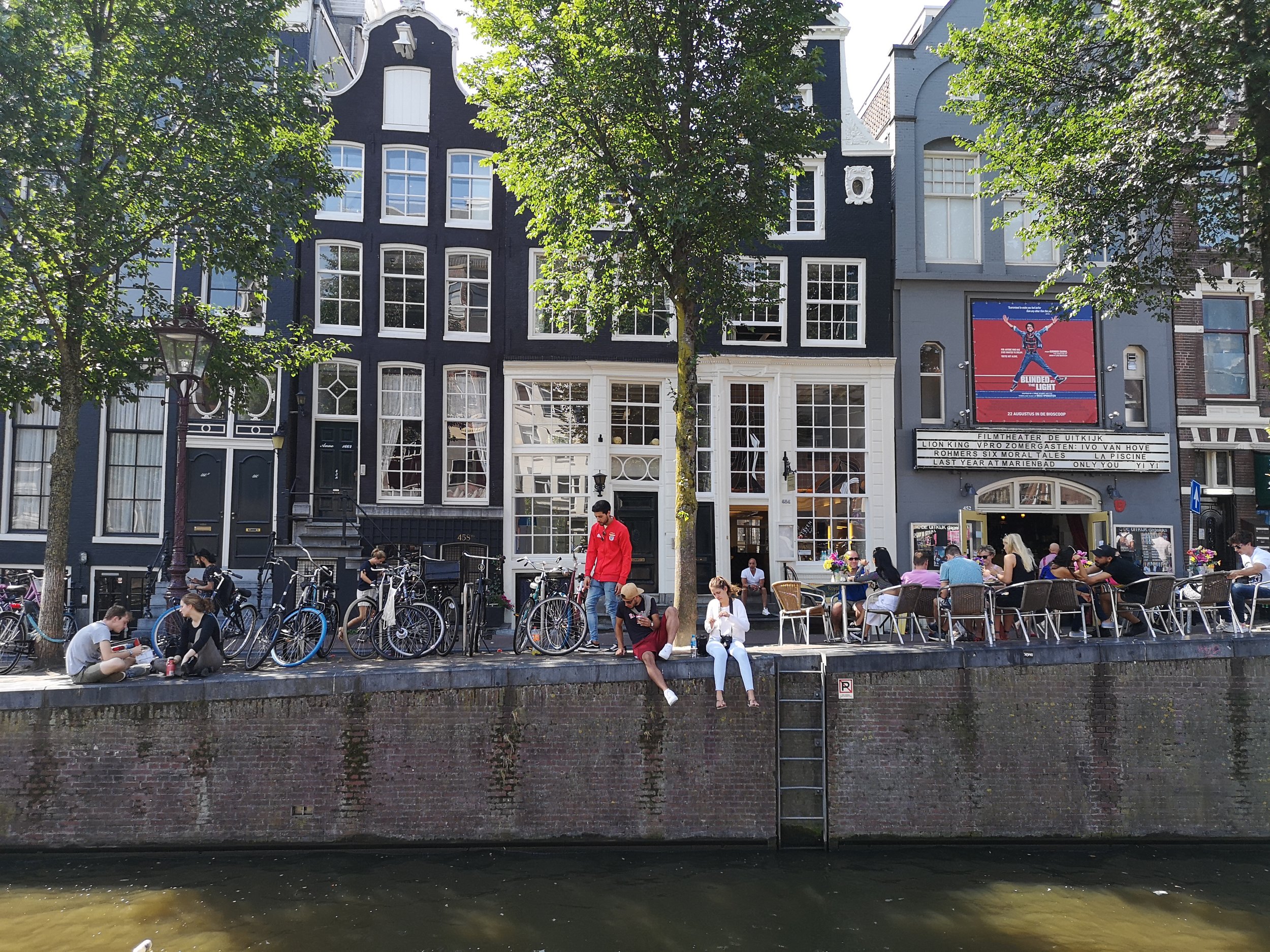
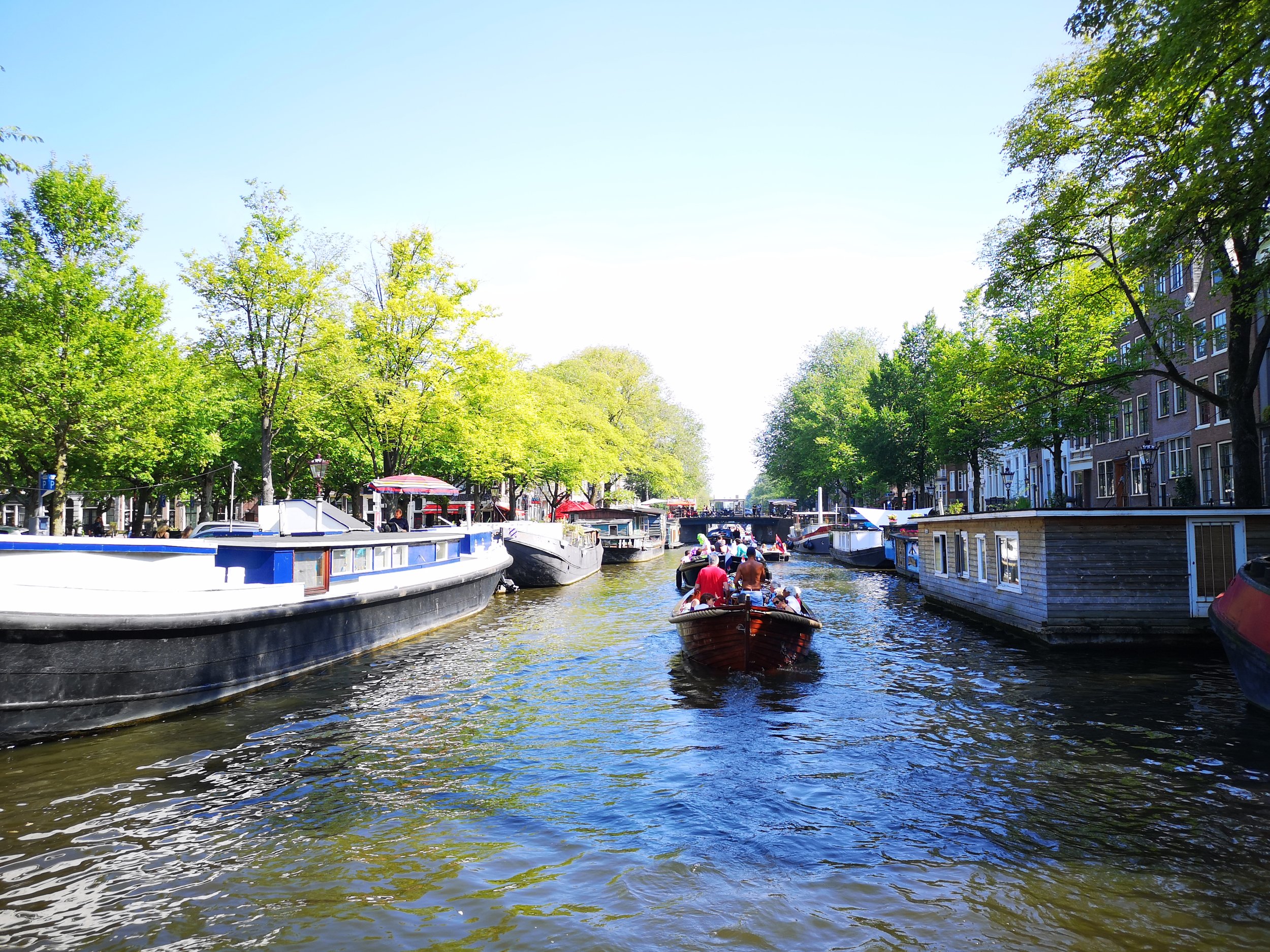
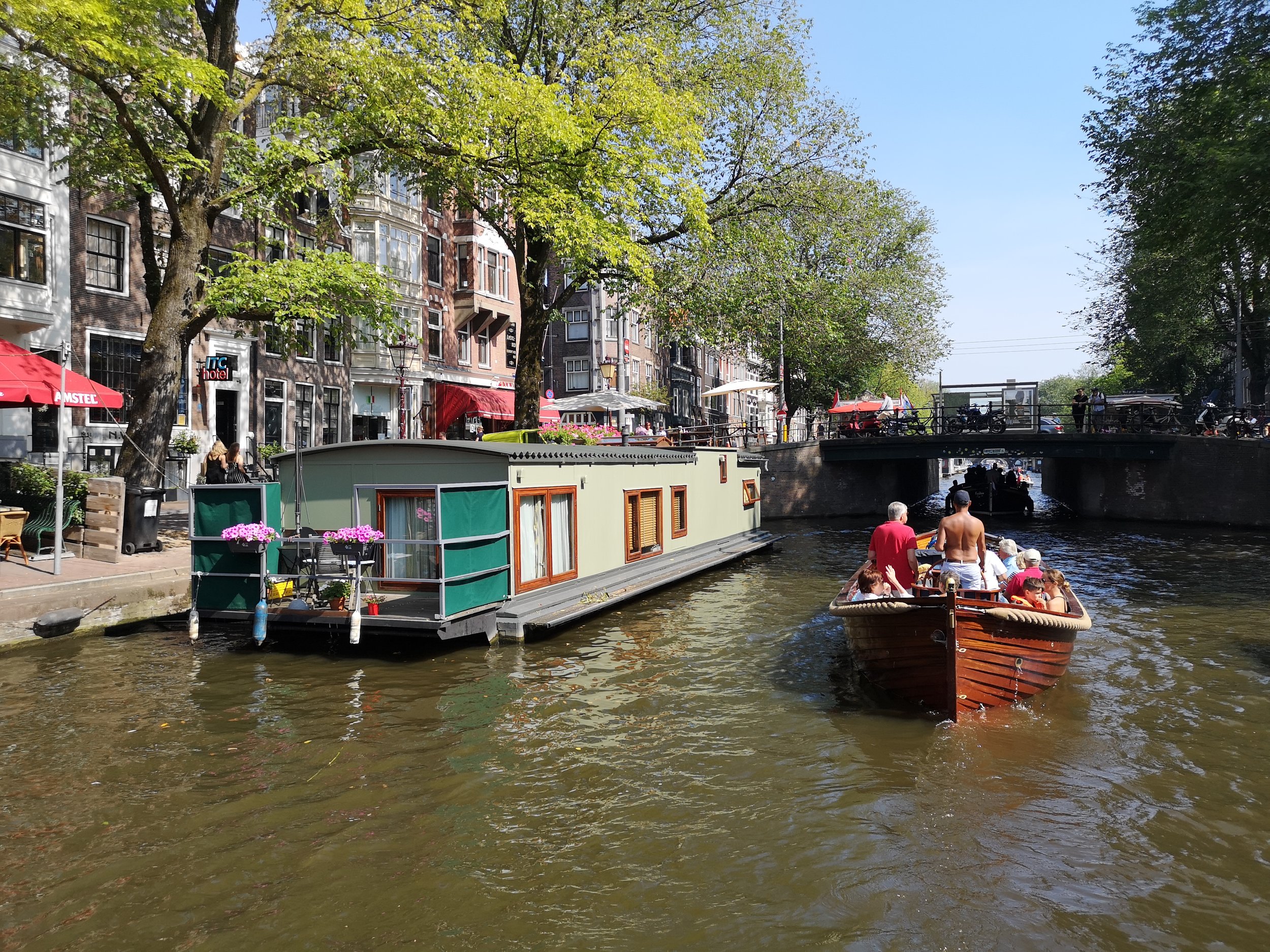
Valkenburg aan de Geul (Limburg, Netherlands)
Castle ruins, impressive caves, châteaus, forests and lots of history reaching back to the Roman time: Valkenburg aan de Geul was a lovely weekend stopover on the way to Tilburg. Also, the weather was superb, the food excellent and last but not least people are extremely friendly. A trip to Maastricht is just 20 minutes away: a vibrant University town, lifely and with an impressive11th-century Basilica in its center. I personally always enjoy the Netherlands coming from Germany. Holland is better managed, more practical, and maintains its character at the same time. There is a lot of effort put into making things neat: the home, the garden, oneself, the car ... and I have often experienced a great sense of community. Cities have a colorful mood, and even I am not a big fan of larger towns, even Amsterdam is a place I feel comfortable, and also Rotterdam has its kind of charm. Tomorrow, I will continue the journey to Tilburg, where I will again stay about a month at the University. It is usually the time, the seasons change from summer to fall, and I am looking forward to my stay there.
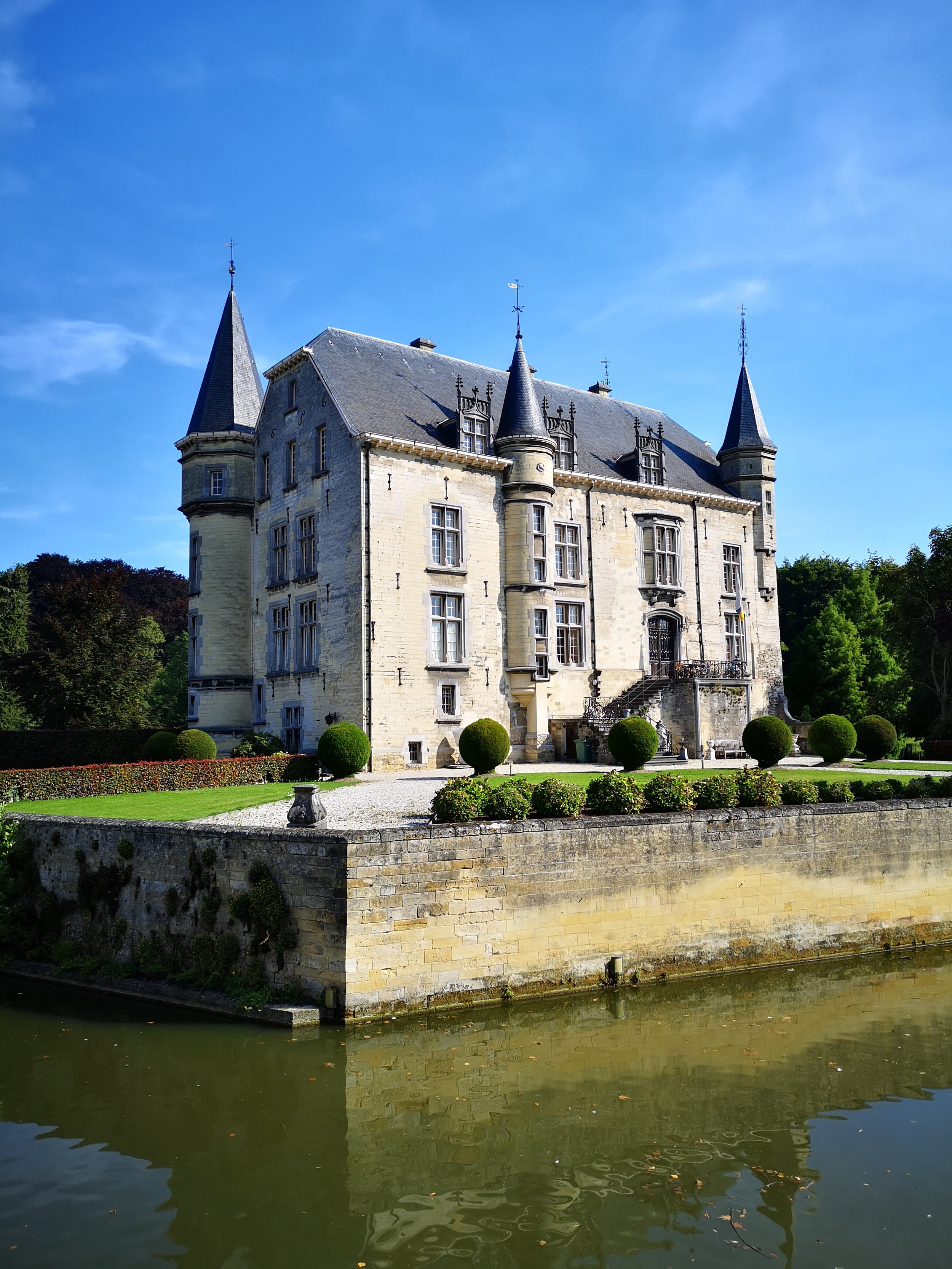
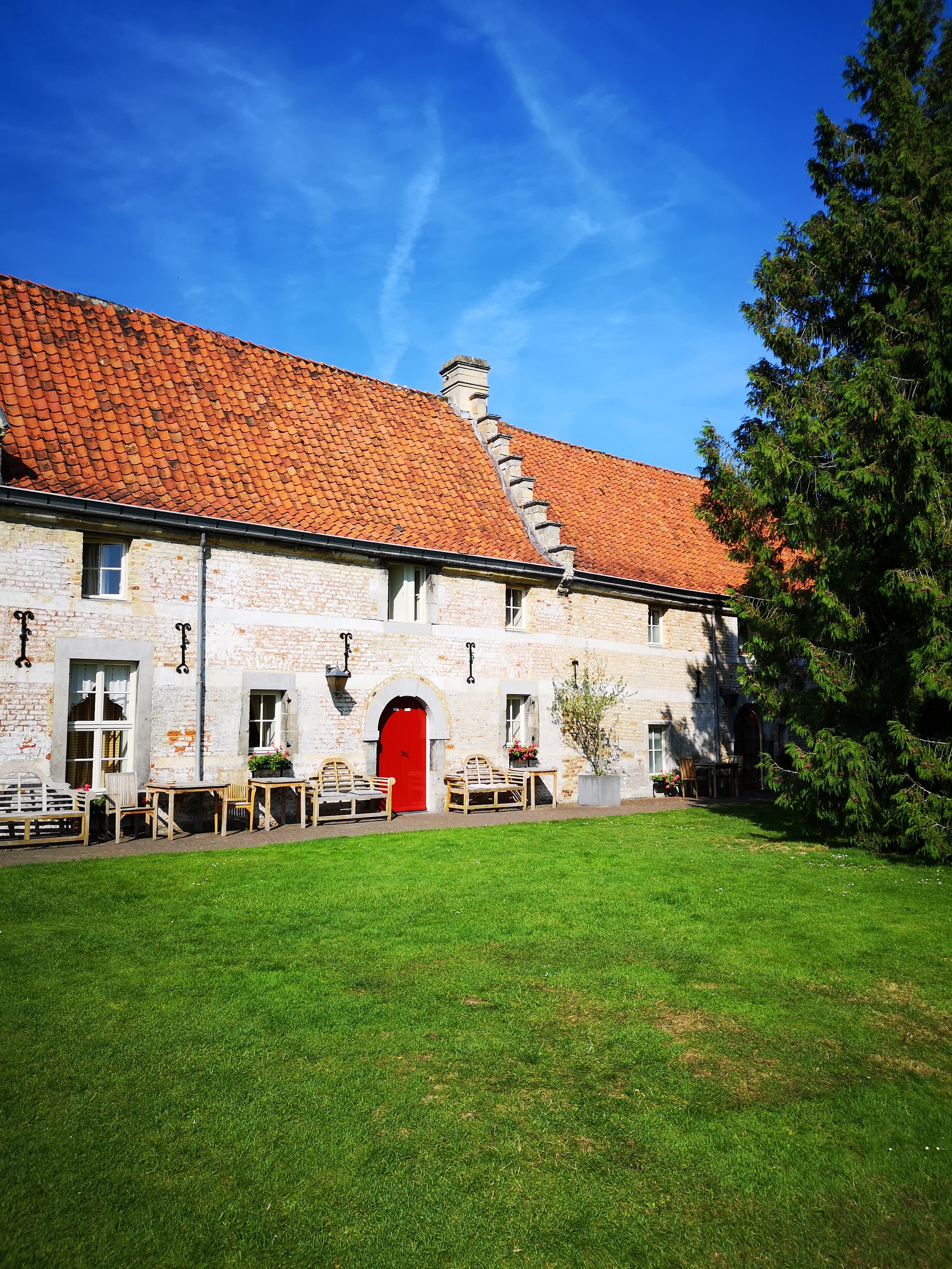
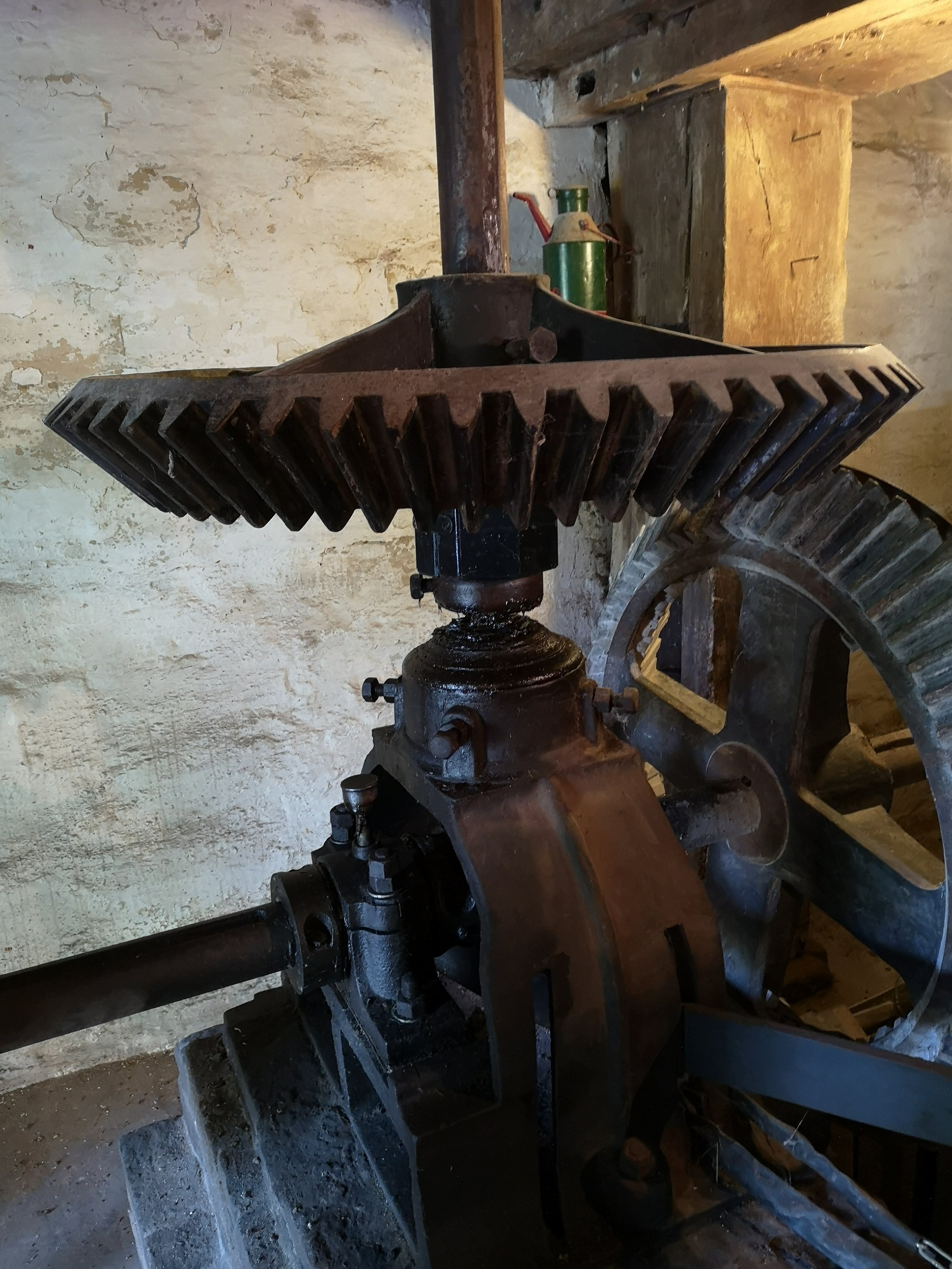
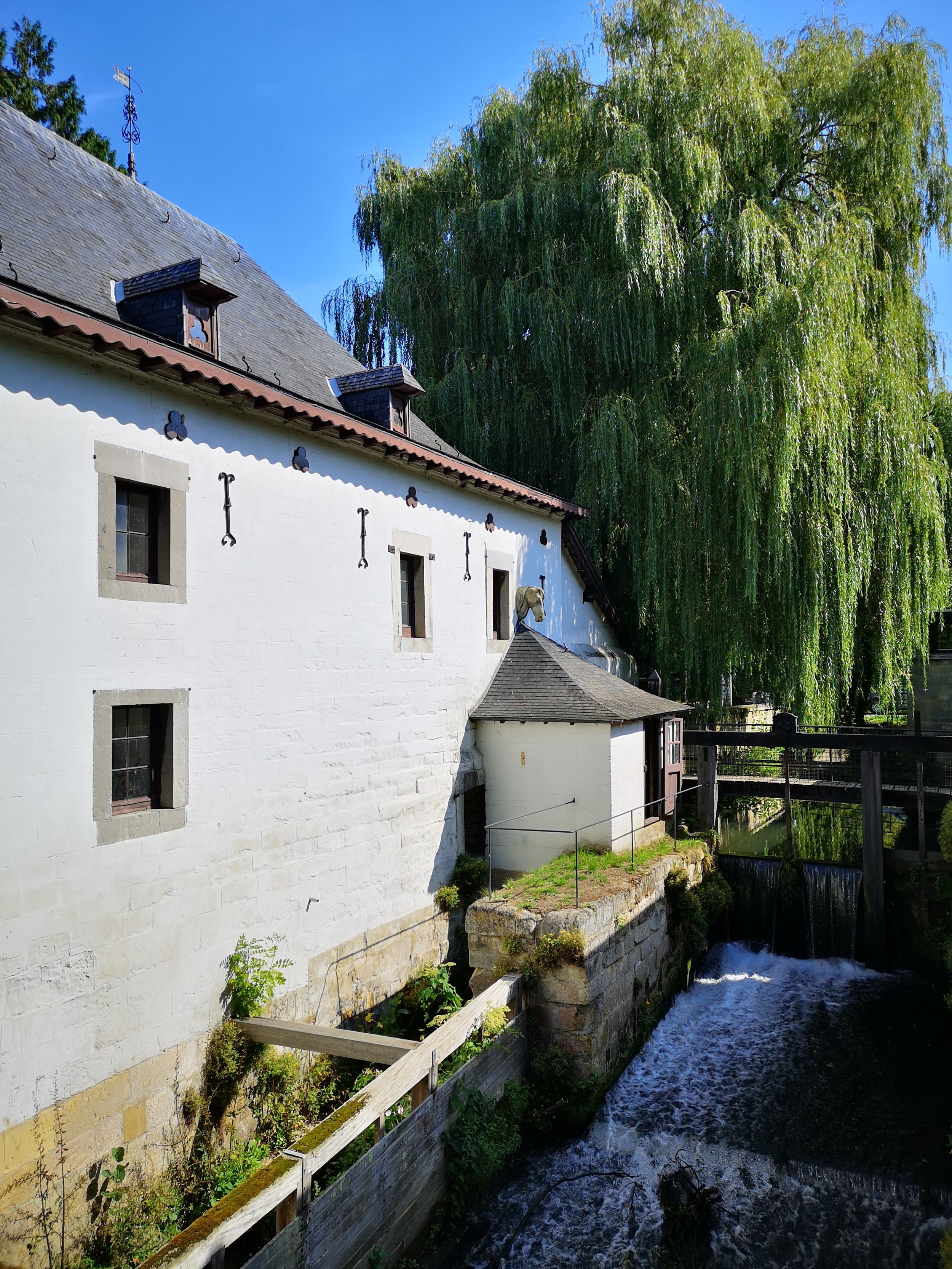
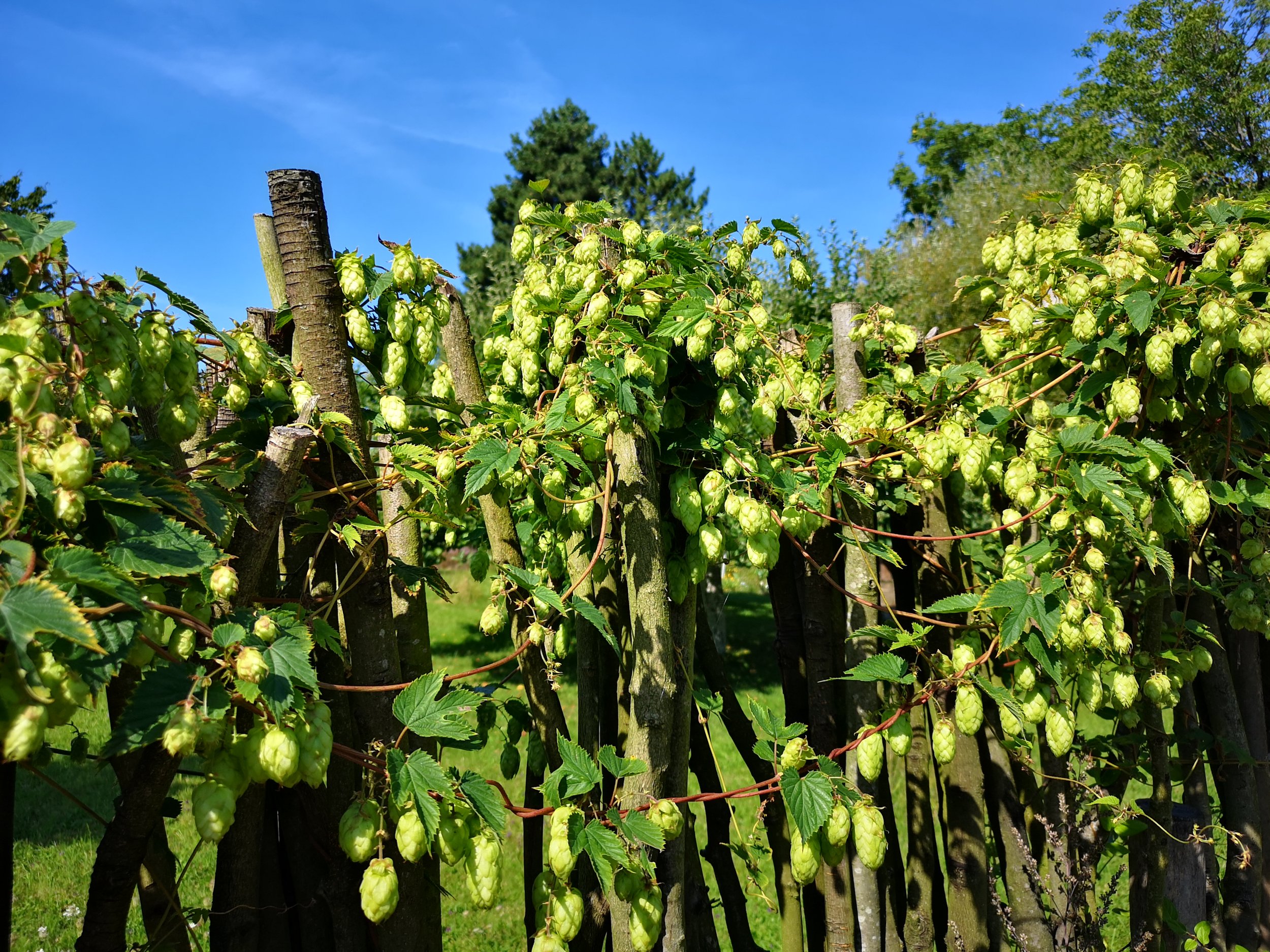
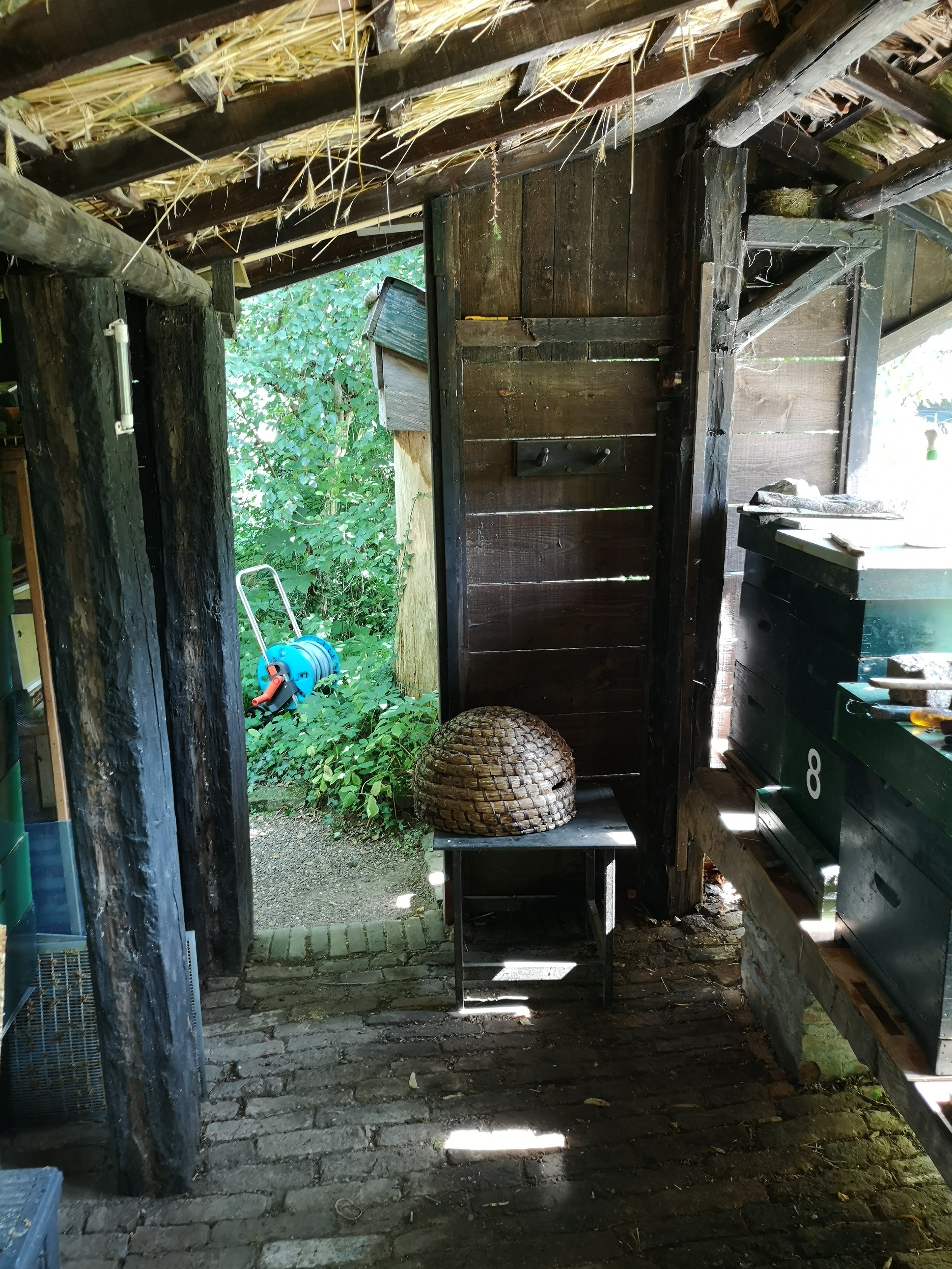
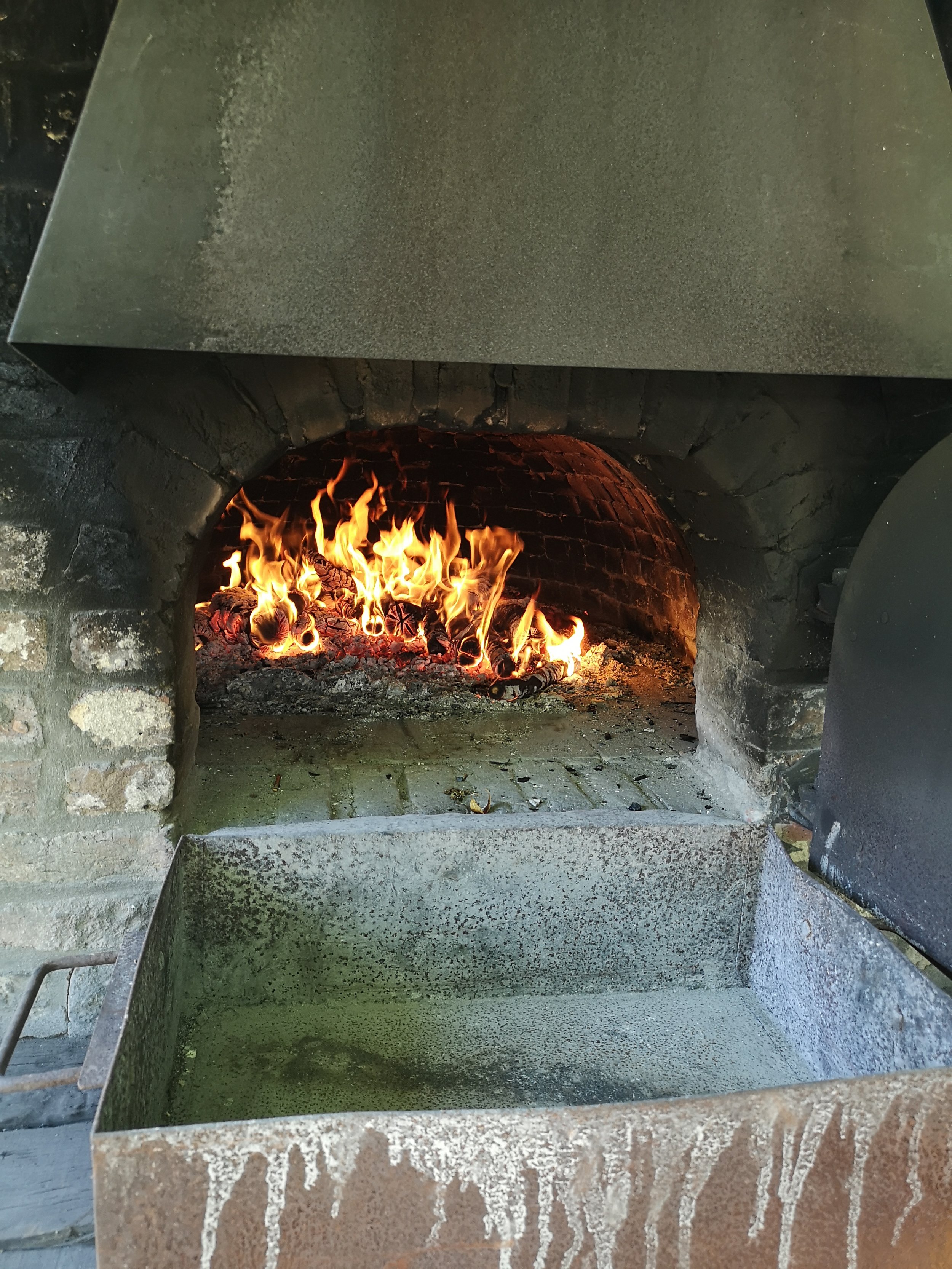
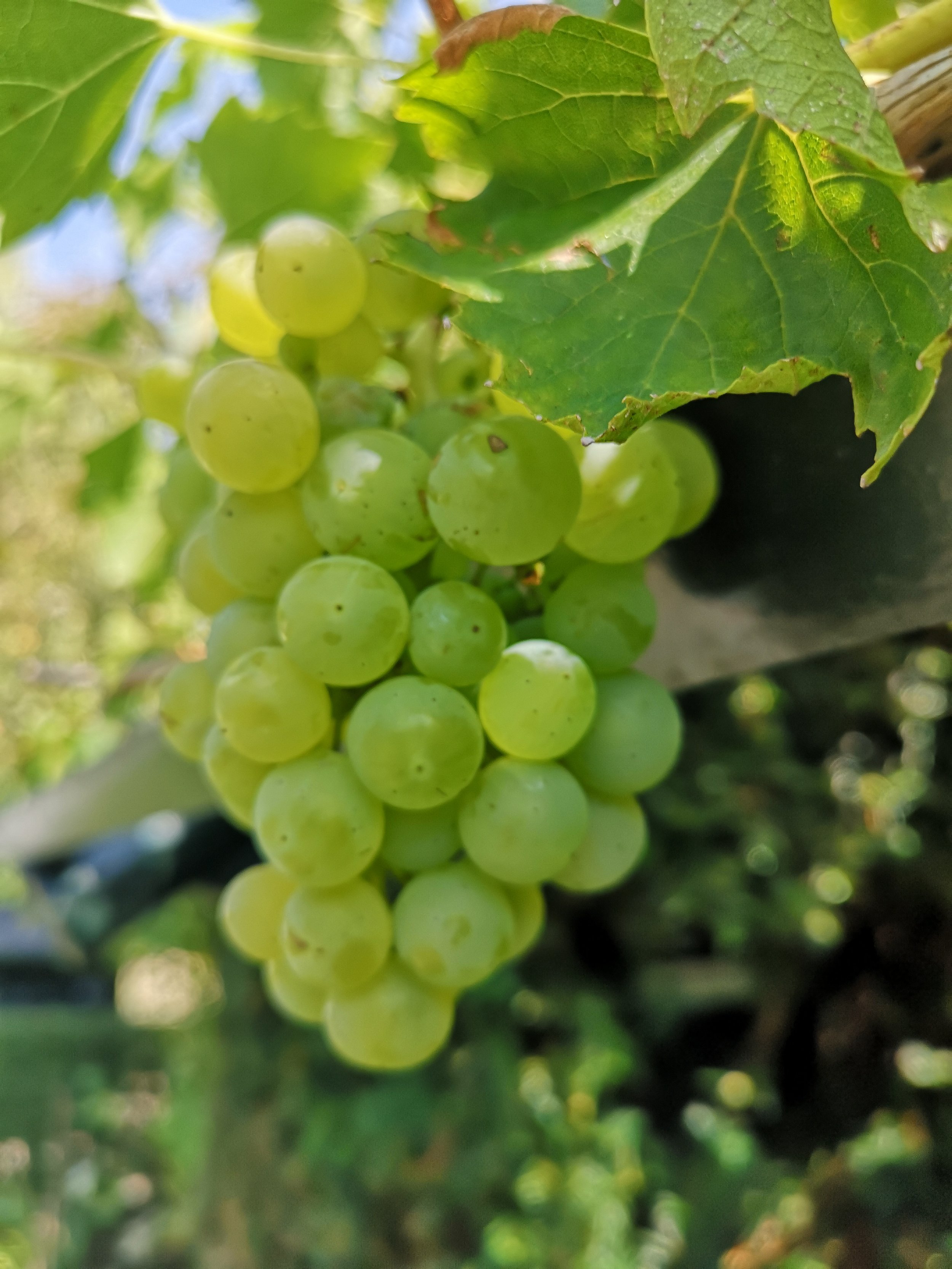
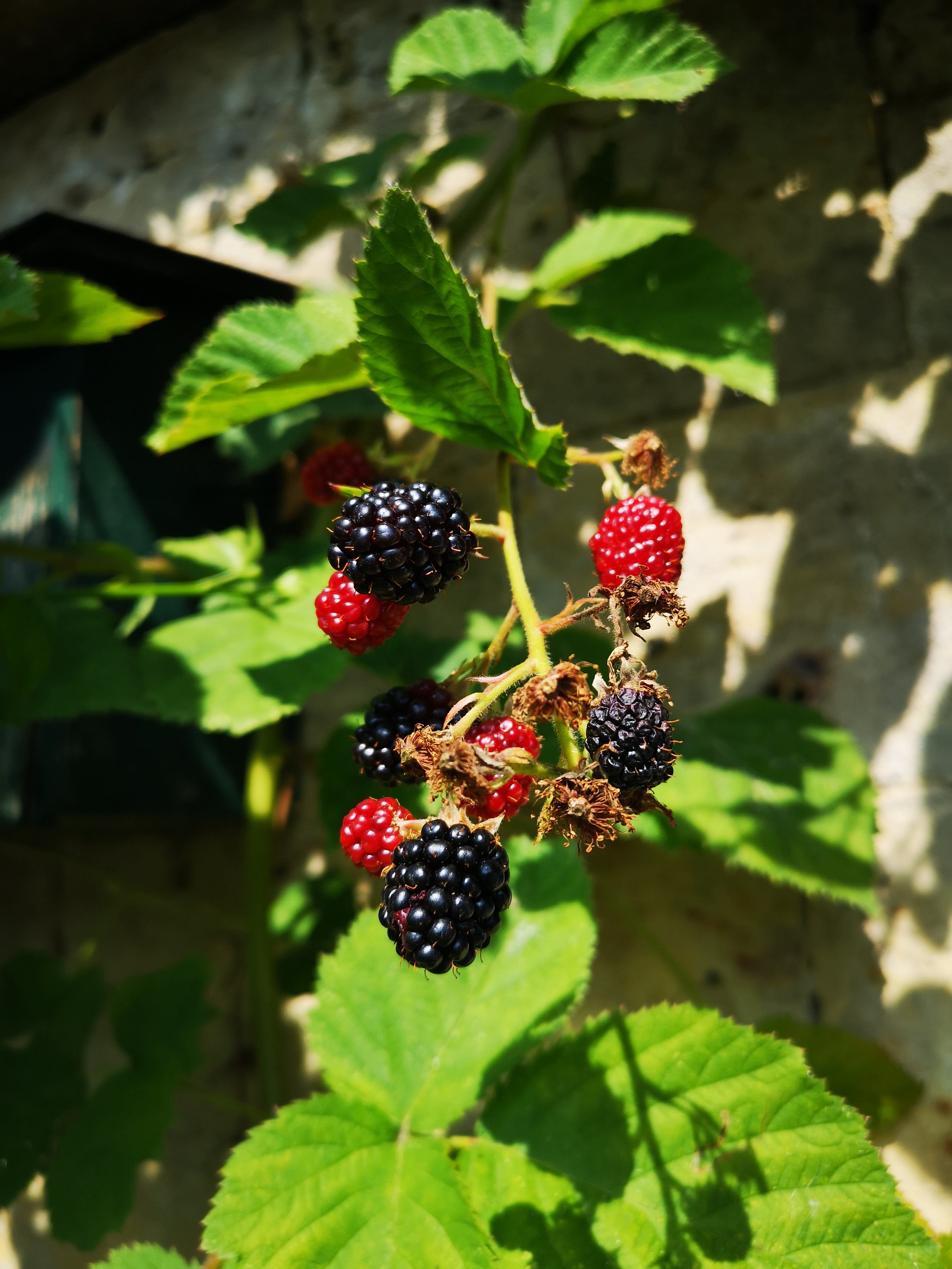
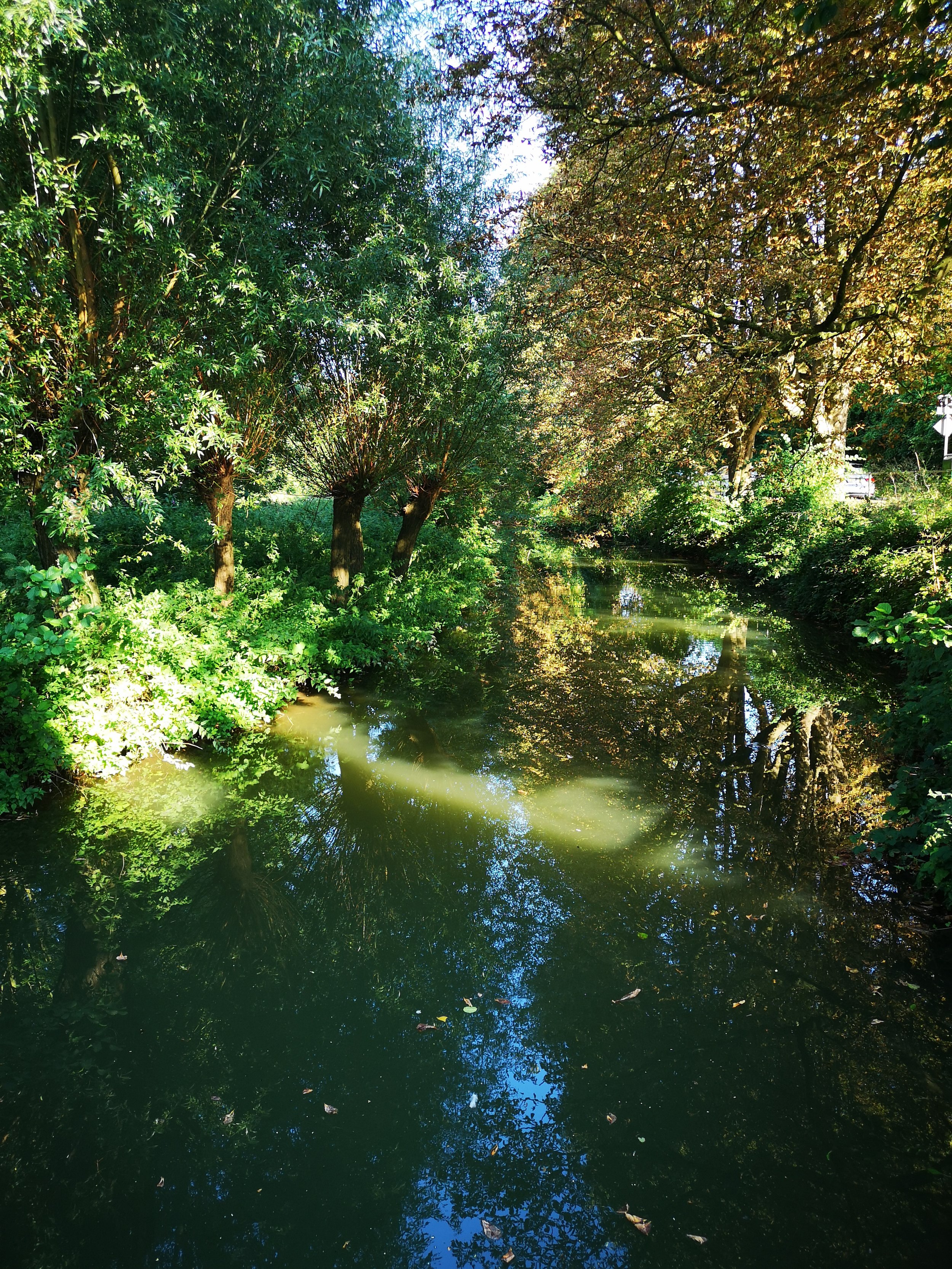
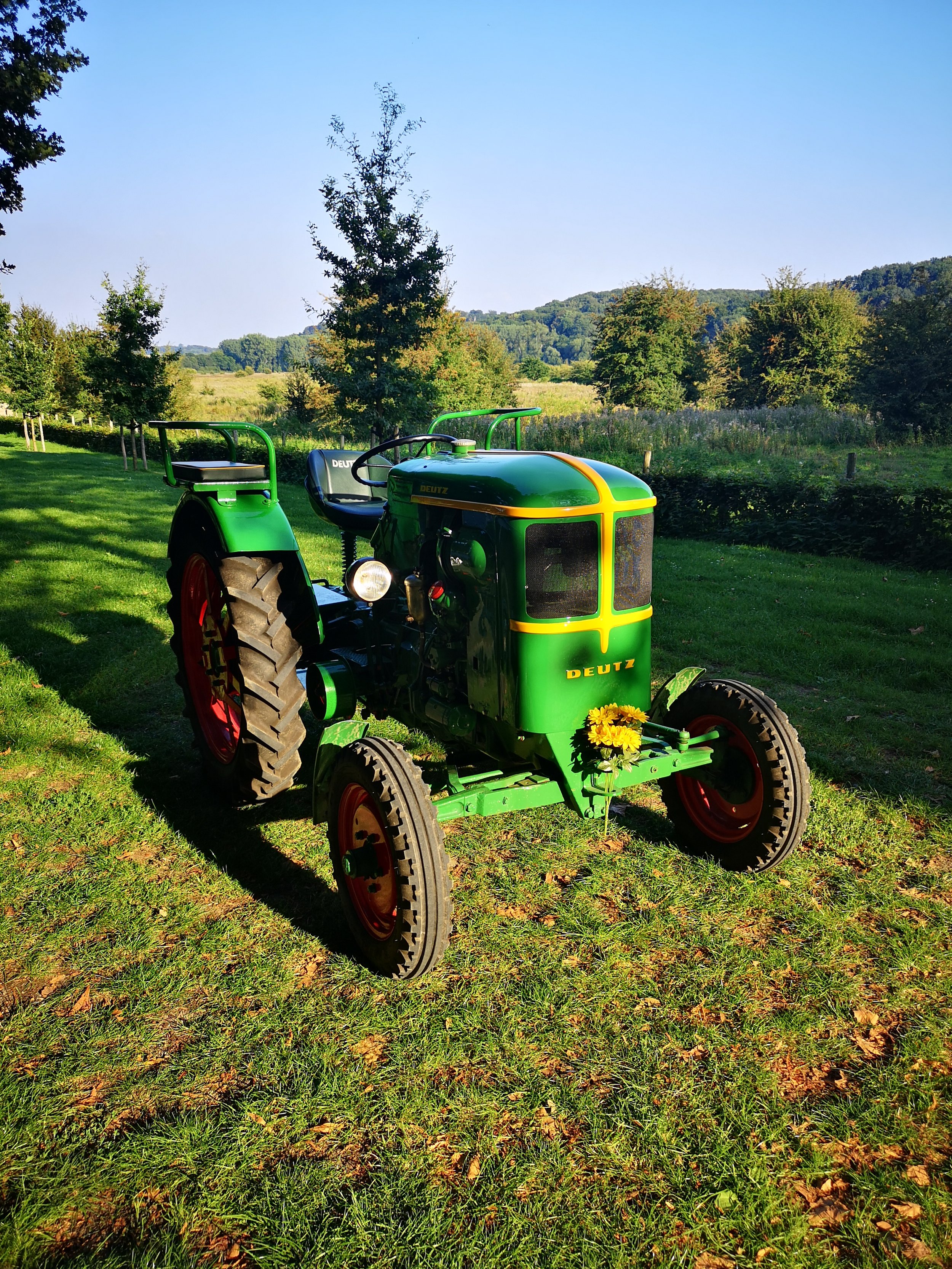
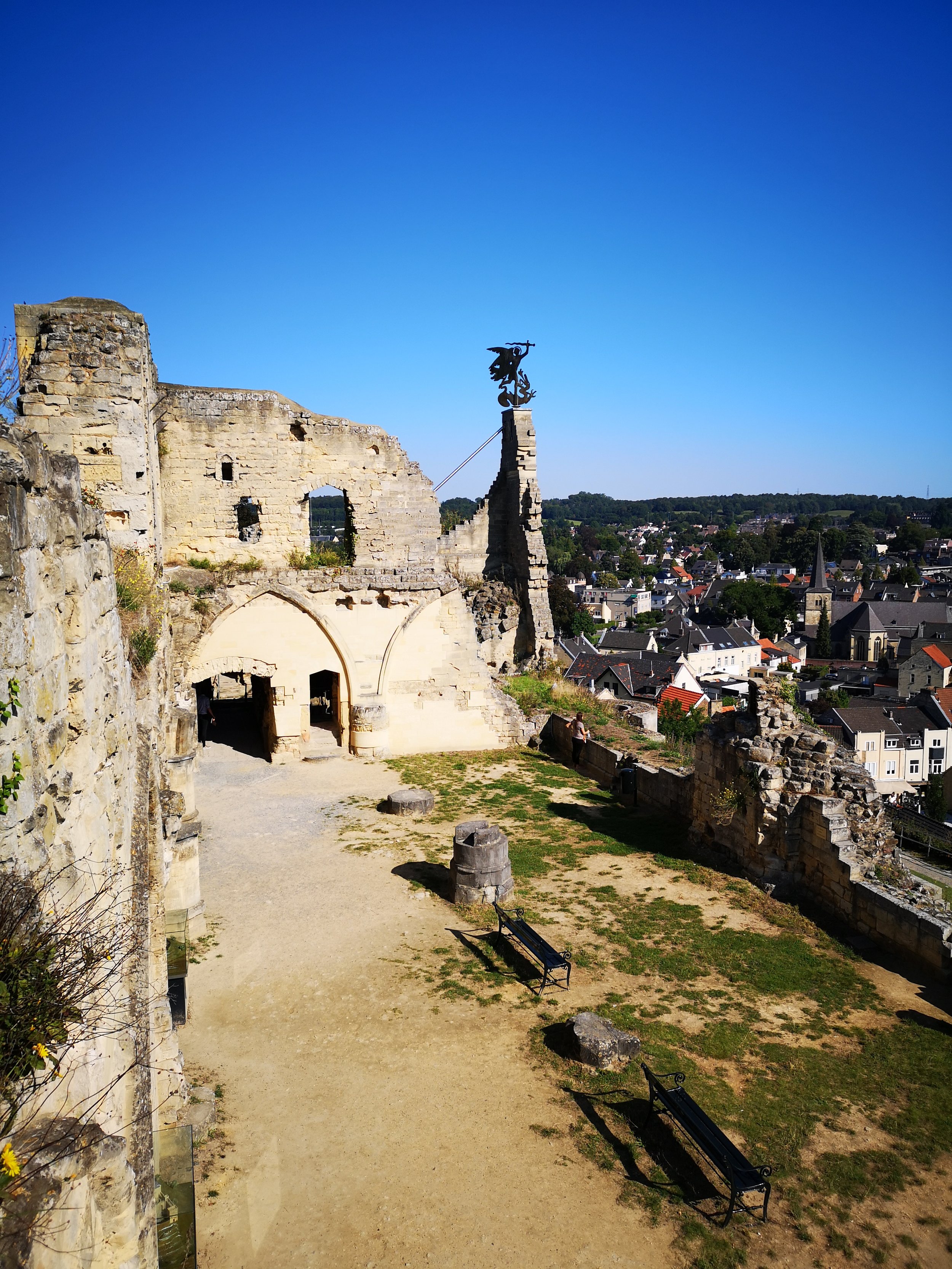
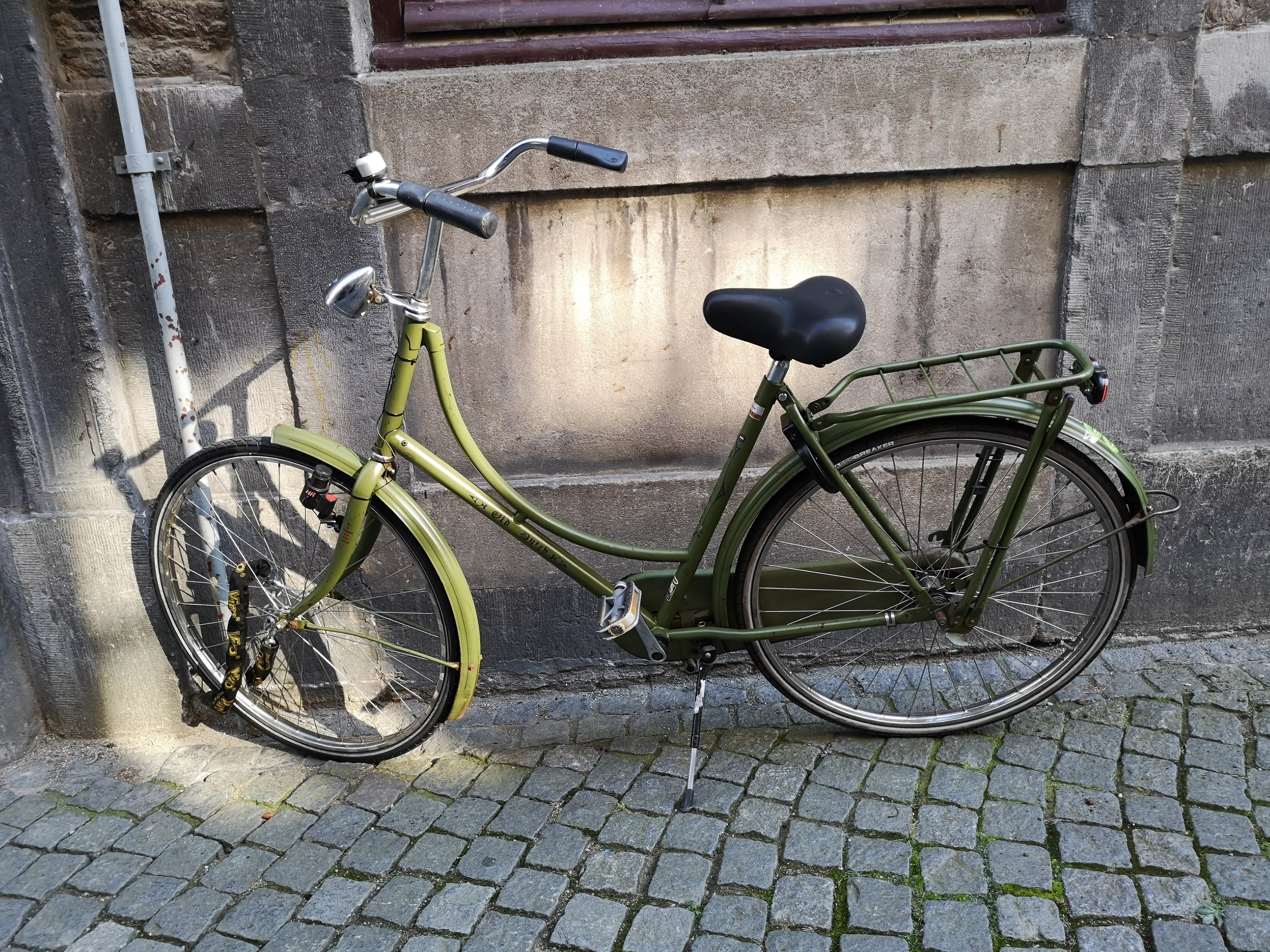
Already time to leave Tilburg again
My Tilburg visit is already over and I have to say, this time, it was too short due to other travel arrangements and my delayed arrival. Students and colleagues were great and it was a real pleasure and privilege to be here. I am looking forward to come back to campus in 2017 and also to explore the Netherlands again a bit more then. Now it is nearly time to head for Malta with a short stop over in Frankfurt. Still no sign of autumn here, which is very exceptional this year.
Exploring the land of canals from the waterside.
Tilburg arrival
Unfortunately, I arrived a week delayed in Tilburg due to my Malaria. And I find the recovery of fitness is going rather slowly. Of course, this is not a complaint, as this kind of Malaria is still a life threatening disease and it seems no surprise that a full recovery is not done in days but weeks. I am visiting Tilburg University and Lecture in the Master of International Management, as I also did last year. It is a very enjoyable environment with bright students, nice colleagues and good infrastructure. It is an amazing late summer this year, while in the same period of 2015 I was taking pictures of a commencing autumn here. Most of Northern Europe is experiencing record temperatures these days. And of course many people see this with pleasure and concern at the same time.
I am also looking a bit deeper into the economic development of Tilburg, including the recovery from the time after the decline of the textile and leather industry. One of the newest achievement is that Tesla has opened an assembly plant, in the commercial zone. The city revived after depression with services, logistics, food and beverage production. It is experimenting with "unconditional minimum income" for every citizen, no ties attached. And it turned itself, not into an architectural beauty, but a modern and clean habitat, which in many ways appears like it could serve as a model for others and future cities. This fits into a research topic I am going to deepen in 2017 with some projects.
Tesla at Tilburg. After a great test drive of the Model S (photo snapped by Jeroen Kuilman).
Arrived Tilburg
A few months ago, I received a surprise invitation to come to Tilburg University and teach in the Master in International Management Program. Luckily the program team could schedule the course very compact in one month, and after I cleaned up my calendar own a bit, we could fit it in. A few days ago, we arrived from London, had a very warm welcome and are very happy to be here. In the Netherlands, Tilburg University is, aside the Erasmus University of Rotterdam, very well represented in global economics and business research. It is a small place with a big punch. Already in my first days here, I experienced a very nice and open working environment, and taught my first lectures to very bright students. What is further remarkable, is the high degree of interaction, and the resulting spirit. I have been to the Netherlands as a visitor before and was in contact with people and culture. But this is the first time, I have a little bit of a deeper insight into the work life. And it is very enjoyable, practical, strait forward, and well managed. The city of Tilburg itself, also is also in this spirit. At the end of the 1800s it developed into the "Wool Capital" of the Netherlands and build up a strong textile industry. It was only in the 1960s that this industry collapsed and the economic mix is now leaning towards services - mainly logistics. During the first phase of economic and urban renewal, many old buildings, including monuments, were demolished. These measures seem very disputed until today. But for me, who does not know the old Tilburg, the city has its charm and represents a very successful case of such transitions. We definitely enjoy being here.
A morning view on the Tilburg University campus







